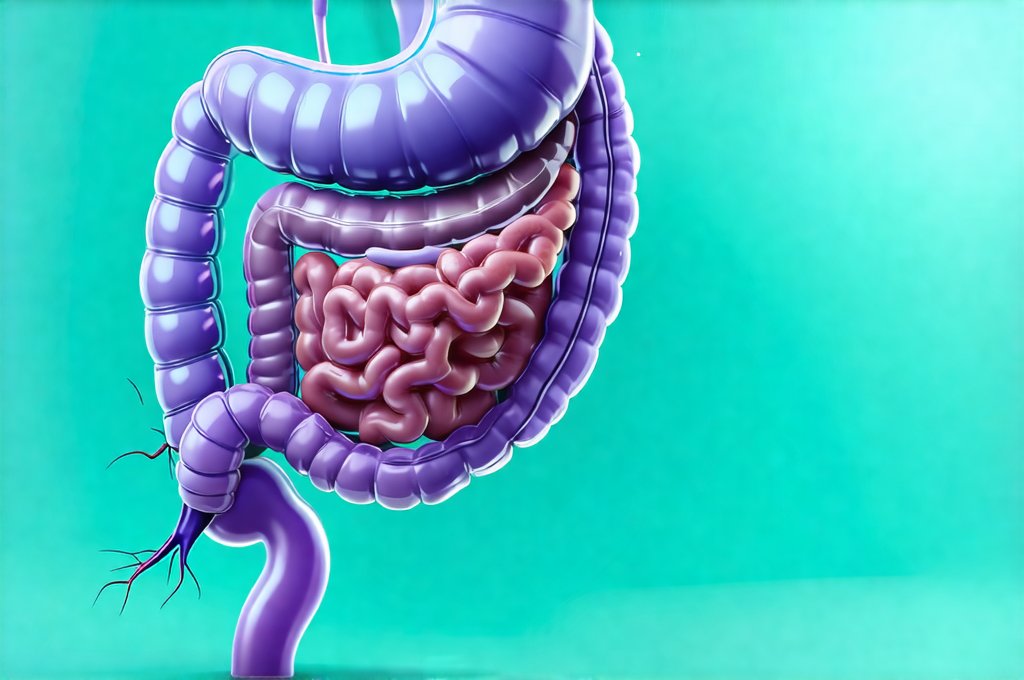Persistent bloating—that uncomfortable feeling of fullness, tightness, and sometimes even pain in your abdomen—is an incredibly common complaint. Many things can cause it, ranging from dietary choices to stress levels to underlying medical conditions. Often, it’s fleeting, resolving on its own or with simple adjustments. But for a significant number of people, bloating isn’t just occasional; it’s persistent, sticking around despite efforts to identify and eliminate the trigger. This chronic discomfort can significantly impact quality of life, leading many to seek answers beyond the typical “cut out gas-producing foods” advice. One increasingly discussed possibility is that low levels of digestive enzymes might be a contributing factor, but the relationship is complex and often misunderstood.
The human digestive system is a remarkably efficient machine, but it relies on a team of specialized proteins called enzymes to break down food into absorbable nutrients. These enzymes are produced in various parts of our digestive tract—the mouth, stomach, pancreas, small intestine—each targeting specific macronutrients like carbohydrates, proteins, and fats. When enzyme production is insufficient, or when the body struggles to utilize them effectively, undigested food can ferment in the gut, leading to gas, bloating, and a host of other unpleasant symptoms. However, it’s crucial to understand that low enzyme levels are rarely the sole cause of persistent bloating; they often interact with other factors like gut dysbiosis, food sensitivities, and motility issues. This article will explore the potential link between low enzyme levels and chronic bloating, how to identify possible deficiencies, and what steps can be taken to support optimal digestion.
Digestive Enzymes and Their Role in Gut Health
Digestive enzymes aren’t a one-size-fits-all category; they are highly specialized. Amylase, produced in the salivary glands and pancreas, breaks down carbohydrates into sugars. Protease (also from the pancreas) tackles proteins, breaking them down into amino acids. And lipase, yet another pancreatic enzyme, is essential for fat digestion, converting triglycerides into fatty acids and glycerol. Each of these enzymes requires a specific pH level to function optimally, highlighting the intricate balance within the digestive system. A deficiency in even one type of enzyme can disrupt this process, leading to incomplete food breakdown and subsequent digestive distress. The pancreas is typically the workhorse for many of these enzymes, so pancreatic insufficiency—a condition where the pancreas doesn’t produce enough enzymes—can be a significant contributor to bloating and malabsorption.
The source of enzymatic deficiency matters too. It can stem from several factors: age-related decline in enzyme production (particularly common as we get older), conditions affecting the pancreas like chronic pancreatitis or cystic fibrosis, certain medications that interfere with enzyme activity, or even dietary habits lacking nutrient building blocks for enzyme synthesis. Furthermore, some individuals may have a genetic predisposition to lower enzyme levels. It’s important to note that symptoms of low enzymes often overlap with those of other digestive issues, making diagnosis challenging without proper assessment. For instance, lactose intolerance can mimic enzyme deficiency symptoms because the body lacks sufficient lactase (the enzyme needed to digest lactose). Reflux and related issues can also contribute to digestive discomfort, making accurate identification crucial.
Finally, it’s not just about having enough enzymes; it’s also about their availability and effectiveness. Even if you produce adequate enzymes, factors like rapid food transit or gut inflammation can hinder their ability to properly break down food. This is where considering the overall health of your digestive system becomes crucial – enzyme supplementation alone isn’t always the answer. A healthy gut microbiome, proper motility, and reduced inflammation are all essential for optimal digestion and nutrient absorption. Mealtime posture can also play a surprising role in how effectively your body processes food.
Identifying Potential Enzyme Deficiencies
Determining if low enzyme levels contribute to persistent bloating requires a multi-faceted approach. There isn’t one definitive test that directly measures overall digestive enzyme activity in a clinically useful way. Traditional stool tests can sometimes assess pancreatic elastase (an indicator of pancreatic function, and therefore enzyme production), but these aren’t always accurate or reliable. A more helpful starting point is often a detailed review of your symptoms and dietary habits with a healthcare professional—a gastroenterologist or registered dietitian specializing in digestive health is ideal.
- Keep a food diary for several weeks, meticulously recording everything you eat and drink, along with any associated symptoms (bloating, gas, diarrhea, constipation). This can help identify potential food triggers and patterns related to specific meals.
- Pay attention to the timing of your bloating. Does it consistently occur after eating certain foods? Does it worsen at particular times of day?
- Consider elimination diets under the guidance of a healthcare professional. Temporarily removing potentially problematic foods (like gluten, dairy, or high-FODMAP foods) can help pinpoint sensitivities and assess whether symptoms improve.
Beyond these initial steps, your doctor might recommend specific tests to rule out other conditions that mimic enzyme deficiency symptoms, such as small intestinal bacterial overgrowth (SIBO), celiac disease, irritable bowel syndrome (IBS), or inflammatory bowel disease (IBD). If pancreatic insufficiency is suspected, more specialized testing—like fecal fat analysis or imaging studies of the pancreas—may be considered. It’s crucial to avoid self-diagnosing and instead work with a qualified healthcare professional to determine the underlying cause of your bloating. GERD symptoms can often masquerade as other digestive issues, making accurate diagnosis essential.
Supplementing with Digestive Enzymes: A Cautious Approach
If enzyme deficiency is suspected, supplementation can sometimes provide relief, but it’s not a long-term solution without addressing the root cause. Digestive enzymes are readily available over-the-counter in various formulations, often containing combinations of amylase, protease, and lipase. However, choosing the right supplement requires careful consideration.
- Look for high-quality supplements from reputable brands that undergo third-party testing to ensure purity and potency.
- Consider your specific needs. If you suspect carbohydrate maldigestion, a higher dose of amylase might be beneficial. If fat digestion is problematic, prioritize lipase supplementation.
- Start with a low dose and gradually increase it as tolerated, paying close attention to how your body responds.
It’s essential to understand that enzyme supplements are intended to aid digestion, not replace the need for a healthy diet and lifestyle. They should be used strategically, ideally alongside dietary modifications and other supportive therapies. Furthermore, long-term supplementation can potentially suppress your natural enzyme production over time. Fatigue is a common symptom associated with digestive issues and may impact overall health.
Beyond Enzymes: A Holistic Approach to Bloating
While digestive enzymes can play a role in managing bloating, they are just one piece of the puzzle. A truly holistic approach addresses all contributing factors – including diet, lifestyle, and gut health. Focusing on food quality is paramount; prioritize whole, unprocessed foods and limit intake of highly processed items, sugary drinks, and artificial sweeteners. Identifying and eliminating food sensitivities through an elimination diet (guided by a healthcare professional) can also significantly reduce bloating.
- Prioritize fiber-rich foods, but introduce them gradually to avoid exacerbating symptoms.
- Stay hydrated—water helps move food through the digestive tract.
- Manage stress levels—chronic stress can disrupt digestion and contribute to bloating. Techniques like meditation, yoga, or deep breathing exercises can be helpful.
- Support your gut microbiome with probiotic-rich foods (yogurt, kefir, sauerkraut) or a high-quality probiotic supplement.
Ultimately, persistent bloating is often a sign that something is out of balance in your digestive system. Addressing the underlying causes—whether it’s enzyme deficiency, gut dysbiosis, food sensitivities, or stress—is key to achieving long-term relief and restoring comfortable digestion. Remember to consult with a healthcare professional for personalized guidance and treatment recommendations. Ear pain can sometimes be linked to digestive issues, so it’s important to investigate all possible causes.


















